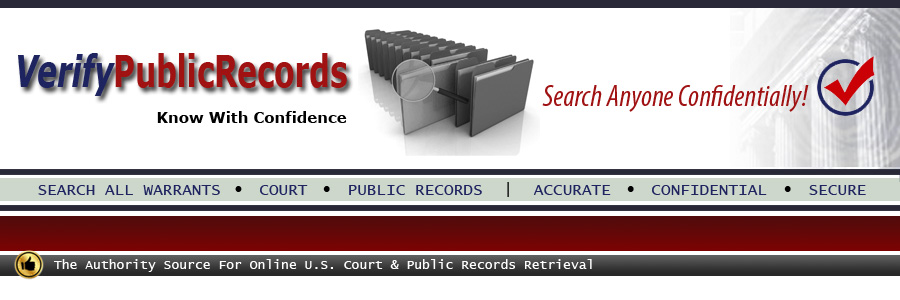


Citizen Rights That Can Be
Revoked After Being Convicted
Voting Privileges
14 states permanently take away your right to vote
Right to Hold Public Office
25 states won't allow an ex-convict to run for state government positions
Security Clearances
Security clearance can be denied to people with a criminal record in certain professions
Passport Restrictions
You will not be able to obtain a passport or a visa for entry into certain countries
Firearms
You may not be able to legally obtain firearms if you have a conviction record
Parenting Rights
Parental custody or visiting rights may be revoked or restriced depending on the offense
Revoked After Being Convicted
Voting Privileges
14 states permanently take away your right to vote
Right to Hold Public Office
25 states won't allow an ex-convict to run for state government positions
Security Clearances
Security clearance can be denied to people with a criminal record in certain professions
Passport Restrictions
You will not be able to obtain a passport or a visa for entry into certain countries
Firearms
You may not be able to legally obtain firearms if you have a conviction record
Parenting Rights
Parental custody or visiting rights may be revoked or restriced depending on the offense

Court Records
Court records are records that are documented whenever a person goes to court and appears before a judge. The reason could be a civil case, to get a divorce, if you're on trial for a crime, a monetary disagreement, to collect child support, a property dispute and more. A court record basically documents all proceedings during and relating to the trial and is preserved long enough for all appeals to be exhausted, or whatever period of time is dictated by law.
Elements of a court record will contain your personal information and the information of the other party involved, the court date, details of the case, the reason for the dispute, judgements, and any other records attached to the case. In criminal cases these court records will be attached to your criminal file and will list the sentencing and verdicts. Civil court cases are generally relegated to one incident or disput. For the most part they don't involve criminal activity, but instead a conflict over monetary damages and are relegated to civil action cases, small claims, eviction actions, court judgments and probate cases.
Child Support
A child support warrant can be issued by a judge when a non-custodial parent fails to pay their obligation of child support to the other parent. The way delinquent child support is usually exposed is when a parent owed support goes to court with a complaint of breech of the child support agreement. They must submit proof that the non-custodial parent has gone delinquent on their debt. Once this information is validated, the judge will issue a warrant for the non-custodial parent .
The non-custodial parent must appear in court and have the right to plead their case and reason for not paying their obligation. If necessary law enforcement is authorized to make an arrest in order to bring a non-custodial parent to court. Generally, a civil child support warrant is issued since it's a case of monetary value.
If someone has failed to pay child support for an extended period of time, owes a large sum of back payments, or isn't paying and cannot be located, then a child support warrant is issued to try and bring forth the person into meeting with the courts to resolve the matter.
Court records are records that are documented whenever a person goes to court and appears before a judge. The reason could be a civil case, to get a divorce, if you're on trial for a crime, a monetary disagreement, to collect child support, a property dispute and more. A court record basically documents all proceedings during and relating to the trial and is preserved long enough for all appeals to be exhausted, or whatever period of time is dictated by law.
Elements of a court record will contain your personal information and the information of the other party involved, the court date, details of the case, the reason for the dispute, judgements, and any other records attached to the case. In criminal cases these court records will be attached to your criminal file and will list the sentencing and verdicts. Civil court cases are generally relegated to one incident or disput. For the most part they don't involve criminal activity, but instead a conflict over monetary damages and are relegated to civil action cases, small claims, eviction actions, court judgments and probate cases.
Child Support
A child support warrant can be issued by a judge when a non-custodial parent fails to pay their obligation of child support to the other parent. The way delinquent child support is usually exposed is when a parent owed support goes to court with a complaint of breech of the child support agreement. They must submit proof that the non-custodial parent has gone delinquent on their debt. Once this information is validated, the judge will issue a warrant for the non-custodial parent .
The non-custodial parent must appear in court and have the right to plead their case and reason for not paying their obligation. If necessary law enforcement is authorized to make an arrest in order to bring a non-custodial parent to court. Generally, a civil child support warrant is issued since it's a case of monetary value.
If someone has failed to pay child support for an extended period of time, owes a large sum of back payments, or isn't paying and cannot be located, then a child support warrant is issued to try and bring forth the person into meeting with the courts to resolve the matter.
ęCopyright VerifyPublicRecords.com_LLC. All Rights Reserved. VerifyPublicRecords.com is not affiliated in anyway with any Federal or State government agencies. All trademarks on this website, whether registered or not, are the property of their respective owners. Please do your own due diligence to determine if the content is right for your individual purposes. The publisher, vendors and advertisers of this site are not liable for any damages or losses associated with its content or the information posted by the publisher, advertisers and vendors. If you have any questions related to this website, please send an email to support@verifyrecords.com and we will reply within 24 hours. Thank you for visiting VerifyPublicRecords.com.
DISCLAIMER: This report is not legal advice. You need to do your own due diligence to determine if the content is right for your Individual purposes. The publisher of this report is not liable for any damages or losses associated with the content in this report.
DISCLAIMER: This report is not legal advice. You need to do your own due diligence to determine if the content is right for your Individual purposes. The publisher of this report is not liable for any damages or losses associated with the content in this report.
Criminal Records
If you've been caught engaging in criminal activity or have been arrested for any reason, you will have a record on file with the court system in your name. It's required by law that every incident involving law enforcement be documented and kept on file with the state where the incident took place. Depending on the circumstances and the outcome of the altercation you will have either an arrest record, a conviction record or both.
The difference between an arrest record and a conviction record is that having an arrest record doesn't mean you committed a crime. It just means you were arrested. If you have a conviction record, then you were found guilty of a crime and have been punished by the law either by serving time in prison, being assigned a probation period and/or obligated to pay fines. You can have an arrest record without a conviction record, but you can not have a conviction record without an arrest record.
Misdemeanor and Felony Records
Most crimes fall into the category of either felonies or misdemeanors. What makes a crime a felony as opposed to a misdemeanor is basically the severity of the crime and if bodily harm was involved. Murder, armed robbery, kidnapping, aggravated assault, or any other violent crimes are considered felonies because someone's life has been harmed or endangered. The punishment for a felony is usually a long prison sentence in addition to hefty fines. If you've been convicted of a felony be prepared to spend a minimum of one year in prison, but sentencing could be for much longer.
Misdemeanors, on the other hand, are generally non-violent crimes and less serious in nature than felonies. Examples of misdemeanors are petty theft, prostitution, disturbing the public, vandalism, public intoxication, etc. In most cases, misdemeanors carry a prison term of less than one year or no prison time at all. Instead, probation and/or fines are ordered as appropriate punishment.
Outstanding Warrants
An outstanding warrant is basically a warrant for your arrest. Outstanding warrants are issued by a judge based on evidence presented by law enforcement that you are likely the person who committed a reported crime. It authorizes law enforcement to arrest and detain you on the basis of that evidence and question you in regards to the case. For the police to legally make an arrest, they have to have probable cause (based on credible information) and obtain a valid arrest warrant first. A valid arrest warrant must be issued by a judge and clearly describe in detail the person to be seized and state any evidence against you.
The laws as to how and when an arrest warrant can be exercised depend on certain factors. If a misdemeanor was not witnessed by the police or any other law enforcement authority then an arrest warrant is needed to apprehend a suspect. Felonies are a different animal, however. If police have probable cause a person has committed a felony, they have the right to make an arrest in a public place without an arrest warrant. In a private residence the rules are different. If you're in your own home, and there is no emergency situation, an arrest warrant is needed for the police to enter your house and make an arrest
In either case it's important to note that these records don’t expire whether it's an outstanding warrant, an arrest record, or a conviction record. They remain on your personal file until the matter is resolved and closed by the court system.
Expungement
Expungement means you would like the record permanently removed from your personal file. Getting a criminal file expunged from your record is much easier with a misdemeanor than with a felony conviction due to the difference in severity of the crimes. Most misdemeanors can be removed without much difficulty, but not all felonies are eligible for expungement. There are restrictions as to which types of felonies can be expunged and some states don't allow felony convictions to be expunged at all.
Sexual offenses or violent crimes resulting in bodily death or injury are usually the crimes that can't be erased. Despite the type of record there is a process to follow and a waiting period involved in order to get a record removed. It's strongly advised to hire a lawyer who can advocate on your behalf and to make sure the record is expunged successfully.
Generally, you must file a petition for expungement with the court that convicted you of the charge requesting that your felony or misdemeanor conviction be removed. You will need to explain to the best of your ability why you need the charge reversed and prove that your behavior meets the requirements of your state's laws for expungement. You will most likely have to provide proof that you satisfied the terms and conditions of your sentence, reveal if you've been charged with or convicted of any new crimes, and whether you are currently on probation or parole for another offense.
Remember, a conviction record will remain on your personal file indefinitely unless you to take action to have it removed. Depending on the state, the type of offense, and if you have legal representation, this process can take anywhere from three months to a year or more. The judge of the court in which you were convicted is the one who will decide whether to grant you expungement or not. That's why it's crucial to comply with your state's laws and fulfill the obligations of your sentencing. If expungement is granted, the record(s) will be erased and sealed from public view.
If you've been caught engaging in criminal activity or have been arrested for any reason, you will have a record on file with the court system in your name. It's required by law that every incident involving law enforcement be documented and kept on file with the state where the incident took place. Depending on the circumstances and the outcome of the altercation you will have either an arrest record, a conviction record or both.
The difference between an arrest record and a conviction record is that having an arrest record doesn't mean you committed a crime. It just means you were arrested. If you have a conviction record, then you were found guilty of a crime and have been punished by the law either by serving time in prison, being assigned a probation period and/or obligated to pay fines. You can have an arrest record without a conviction record, but you can not have a conviction record without an arrest record.
Misdemeanor and Felony Records
Most crimes fall into the category of either felonies or misdemeanors. What makes a crime a felony as opposed to a misdemeanor is basically the severity of the crime and if bodily harm was involved. Murder, armed robbery, kidnapping, aggravated assault, or any other violent crimes are considered felonies because someone's life has been harmed or endangered. The punishment for a felony is usually a long prison sentence in addition to hefty fines. If you've been convicted of a felony be prepared to spend a minimum of one year in prison, but sentencing could be for much longer.
Misdemeanors, on the other hand, are generally non-violent crimes and less serious in nature than felonies. Examples of misdemeanors are petty theft, prostitution, disturbing the public, vandalism, public intoxication, etc. In most cases, misdemeanors carry a prison term of less than one year or no prison time at all. Instead, probation and/or fines are ordered as appropriate punishment.
Outstanding Warrants
An outstanding warrant is basically a warrant for your arrest. Outstanding warrants are issued by a judge based on evidence presented by law enforcement that you are likely the person who committed a reported crime. It authorizes law enforcement to arrest and detain you on the basis of that evidence and question you in regards to the case. For the police to legally make an arrest, they have to have probable cause (based on credible information) and obtain a valid arrest warrant first. A valid arrest warrant must be issued by a judge and clearly describe in detail the person to be seized and state any evidence against you.
The laws as to how and when an arrest warrant can be exercised depend on certain factors. If a misdemeanor was not witnessed by the police or any other law enforcement authority then an arrest warrant is needed to apprehend a suspect. Felonies are a different animal, however. If police have probable cause a person has committed a felony, they have the right to make an arrest in a public place without an arrest warrant. In a private residence the rules are different. If you're in your own home, and there is no emergency situation, an arrest warrant is needed for the police to enter your house and make an arrest
In either case it's important to note that these records don’t expire whether it's an outstanding warrant, an arrest record, or a conviction record. They remain on your personal file until the matter is resolved and closed by the court system.
Expungement
Expungement means you would like the record permanently removed from your personal file. Getting a criminal file expunged from your record is much easier with a misdemeanor than with a felony conviction due to the difference in severity of the crimes. Most misdemeanors can be removed without much difficulty, but not all felonies are eligible for expungement. There are restrictions as to which types of felonies can be expunged and some states don't allow felony convictions to be expunged at all.
Sexual offenses or violent crimes resulting in bodily death or injury are usually the crimes that can't be erased. Despite the type of record there is a process to follow and a waiting period involved in order to get a record removed. It's strongly advised to hire a lawyer who can advocate on your behalf and to make sure the record is expunged successfully.
Generally, you must file a petition for expungement with the court that convicted you of the charge requesting that your felony or misdemeanor conviction be removed. You will need to explain to the best of your ability why you need the charge reversed and prove that your behavior meets the requirements of your state's laws for expungement. You will most likely have to provide proof that you satisfied the terms and conditions of your sentence, reveal if you've been charged with or convicted of any new crimes, and whether you are currently on probation or parole for another offense.
Remember, a conviction record will remain on your personal file indefinitely unless you to take action to have it removed. Depending on the state, the type of offense, and if you have legal representation, this process can take anywhere from three months to a year or more. The judge of the court in which you were convicted is the one who will decide whether to grant you expungement or not. That's why it's crucial to comply with your state's laws and fulfill the obligations of your sentencing. If expungement is granted, the record(s) will be erased and sealed from public view.



Search All U.S. Public Records
All States and Counties in Less than a Minute
All States and Counties in Less than a Minute

Disclaimer: VerifyPublicRecords.com's data search feed system makes public and arrest records available online for instant viewing and for your convenience. When conducting a search on any person, the system will pull all information available including arrest warrants, criminal history and public record information, whether complete or partial on a person's background up to a 20-year history.

PERSONAL BACKGROUND & PUBLIC RECORDS CHECK
.
.